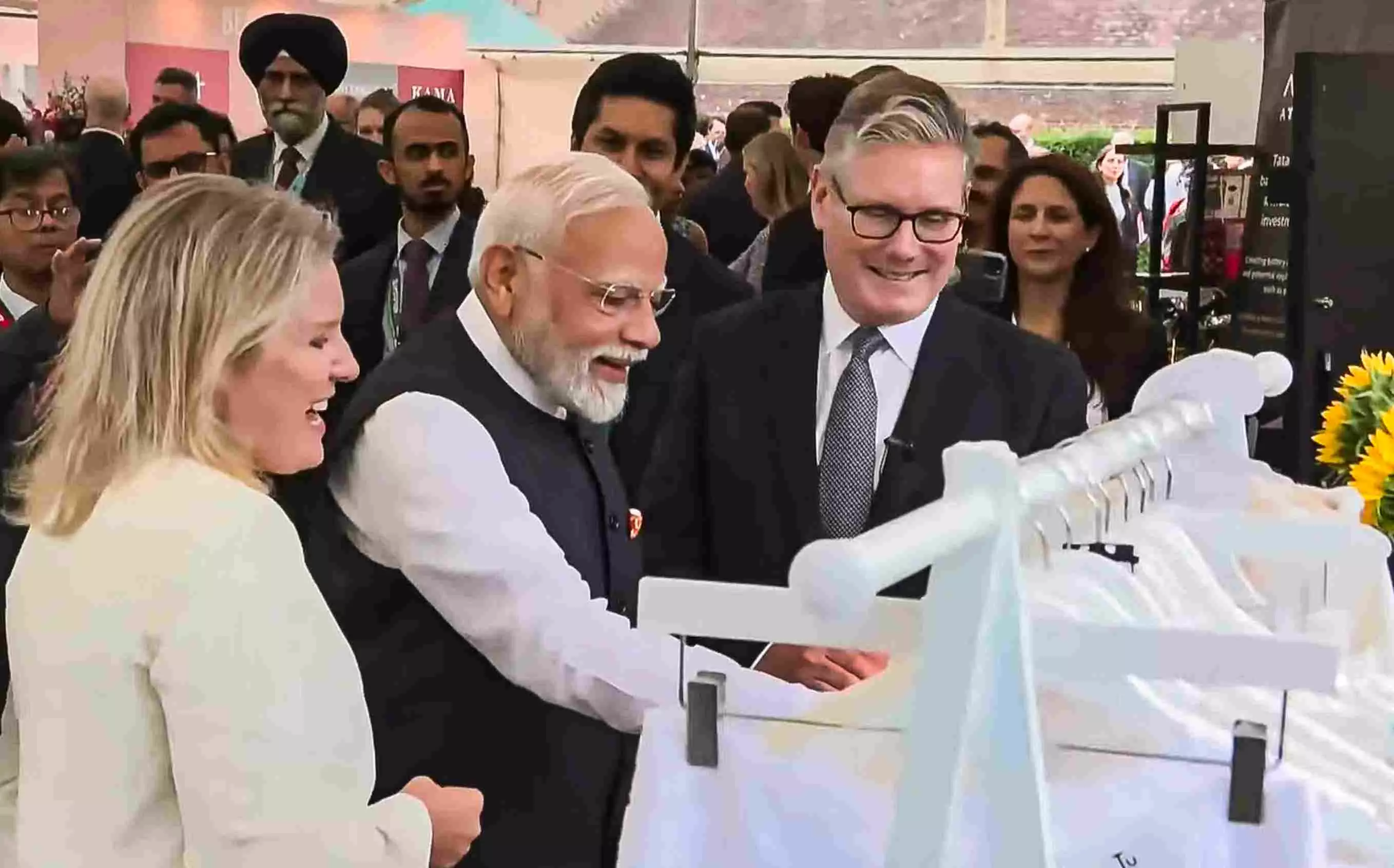
India-UK FTA: Generalities masquerade as historic treaty
By keeping the text secret after concluding the trade negotiations more than two months ago, India betrays a lack of assessment and confidence about its outcome

Though both India and the UK have hailed the new free trade agreement (FTA), formally signed in London on Thursday (July 24), as historic, as they did when the negotiations were concluded more than two months ago on May 6, the actual text of the agreement has not been made public yet.
This secrecy not only makes a proper assessment of the claims about the FTA’s outcomes difficult but also keeps many concerns raised since May 6 unaddressed.
Also read | India-UK FTA: How both countries benefit
For example, India says the FTA will double the trade in five years, from $56 billion to $120 billion by 2030. On the face of it, the duty-free access for 99 per cent of Indian exports to the UK and reduction in average tariffs from 15 per cent to 3 per cent for 90 per cent of imports from the UK would surely boost trade, but will it be sufficient to double the trade in five years?
Carbon tax cloud looms
The trade in goods stood at $23 billion in FY25, its growth wildly varying from 16.8 per cent in FY23 to 4.8 per cent in FY24 and 8.5 per cent in FY25. As for the trade in services, there simply is no data available. Global trade is also in turmoil due to the tariff war unleashed by the US.
The regulatory issues will also have an impact on the bilateral trade. The negotiations had stalled for some time over the UK’s insistence on imposing the carbon tax (CBAM) from January 2026.
Has India secured an exemption for its goods in the FTA? There is no clarity. It also assumes significance because the EU, too, is insisting on taxing Indian goods for being carbon-intensive. The uncertainties around labour standards to be set by the UK also remain unanswered.
Trade goals, patent woes
Considering these and other concerns, trade expert Biswajit Dhar says doubling the trade in five years is “completely unrealistic”, especially when agriculture is in crisis, manufacturing hasn’t picked up, and other than IT, the services sector has nothing more to offer. Whether Indian businesses are able to take advantage of the opportunity is another unknown factor.
Watch | 'To fully capitalise on FTA with UK, India must outperform Chinese exports'
The other big concern remains the weakening of the patent regime that would make essential and life-saving drugs inaccessible to Indian citizens. India had not only diluted the procedural safeguards in its EFTA-India Trade and Economic Partnership Agreement (TEPA), signed in 2024, but it had also incorporated in the Patents (Amendment) Rules of 2024 to allow evergreening of patents and stifle all opposition to the misuse of patents.
A 2022 leaked text of the FTA negotiations with the UK had shown that the latter wanted to weaken the protections against exploitative practices of Big Pharma, which go beyond the TRIP mandate and would need amendments in Indian laws. That concern remains unresolved.
MSMEs may feel the heat
Yet another is the absence of a realistic assessment of the impact of other elements in the FTA. India has agreed to allow UK companies to be treated as a class 2 supplier for at least 20% of their product or service in government procurement.
This would not only directly hurt MSMEs, which the commerce ministry lists among the beneficiaries of the FTA, but also other domestic companies as direct competitors.
Also read | Goyal hails India-UK FTA as boost to MSMEs, farmers, global market access
In fact, the generalities offered by the Commerce Ministry to celebrate the historic opportunity so enraged another trade expert, who refused to be named, that he dismissed it as “completely irrelevant” because no specifics were provided.

